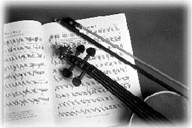
题目列表(包括答案和解析)
It's time to remind myself what I love about life here in California,USA, to remember what I desperately miss when I go home.
Real radio
In the USA there are so many radio stations that those iPod tuner things don’t work at all. There is, simply, no dead air. It took me a while to discover the USA's many public radio stations, which don't broadcast any advertisements. KCRW is my favorites station, for its blend of indie music and current affairs. But I also listen to KJAZZ and KPCC. But before you feel jealous — it’s all online. My favorites: American life Snap Judgement and Henry Rollins live every Saturday night. Take listen online for free News? Well, there's not a lot of news from South Africa, and when it is, it's bad and full of fear, so I ignore it. But I care about any place I live in, and that includes the USA. And on public radio, the USA is covered in depth, from the perspective of individual stories rather than statistics.
The festivals
I’m jealously watching tweets and Facebook boasts and reviews from SXSW — seems like half the people I used to work with in South Africa are there,meeting Grumpy Cat and watching bands they’ve always wanted to see live. It’s great to know that these 1000s of festivals are so close, and that one day,if film school schedule ever allows me to leave campus for more than a few days, I can go to one or two of them. I have already exchanged my much loved Ford Mustang for a bigger, less sexy car — a car spacious enough to sleep in — so that next year I can be there, not just dream of it.
The famous people
When I go back to SA, I'm often asked if I’ve spotted any famous people. It's awkward for me. I feel the the same way about it as I feel when an American asks me if there are lions in the streets. Except yes, I have. No,not lions. I have met some famous people. I chatted to RJ Mitte from Breaking Bad outside a dub in West Hollywood. Many of my professors are famous directors. The problem is, once you meet these famous people, they're just people, FFS. This feels disappointing at first, like you're missing a Jesus moment of some sort. But if you think about it, it's inspiring. What it means, is that I, litlle me (right now, also "just a person") could be a famous just-a-person person one day, and get to make all the films I just dream of now.
1.The underlined sentence "There is,simply, no dead air." probably means____.
A. there is no useless radio programmes in the USA
B. there is no useful radio programmes in the USA
C. there is no polluted air in the USA
D. there is no advertisements from the radio programmes in the USA
2.There are so many festivals that_____.
A. I often leave campus for more than few days
B. I often attend some of them in person
C. I bought a bigger Ford? Mustang
D. I can share many reviews and performances online with my friends in South Africa
3.The author thinks the famous people in the USA _____.
A. are just Like lions????????????? ???????????? B. are well-known but ordinary
C. are disappointing????????????? D. are inspiring
4.The author is most likely to be _____.
A. a director in America????????????? ?????????? B. a professor in South Africa
C. a student in America????????????? ???????? D. an actor in South Africa

湖北省互联网违法和不良信息举报平台 | 网上有害信息举报专区 | 电信诈骗举报专区 | 涉历史虚无主义有害信息举报专区 | 涉企侵权举报专区
违法和不良信息举报电话:027-86699610 举报邮箱:58377363@163.com